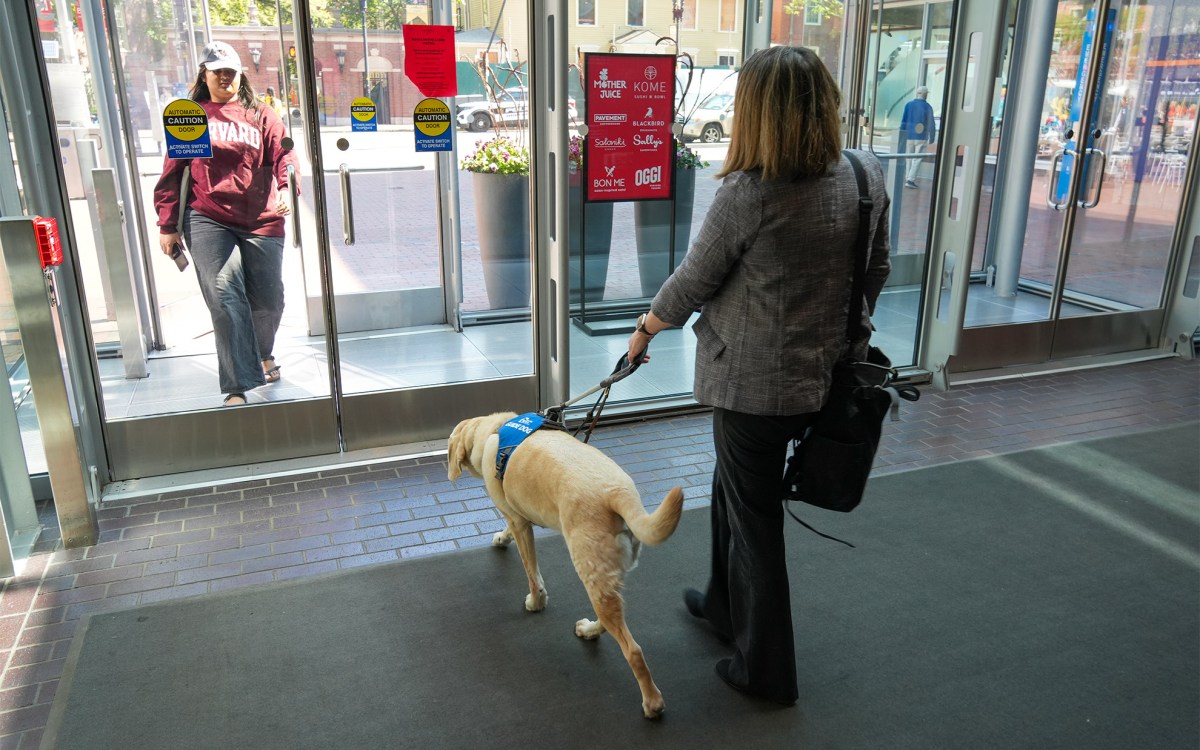Print directories canceled
Defaulting to the Web saves tons of paper
Not long ago, Dara Olmsted ’00 was a teaching fellow in a Harvard course about dinosaurs, a cast of creatures that disappeared 65 million years ago.
Olmsted is now an anthropologist armed with a master’s degree in environmental policy and works in Harvard’s Office for Sustainability (OFS). She is still on the lookout for dinosaurs of a sort: the outdated, everyday practices in office settings that waste resources and that — unlike the allosaurus and pterodactyl — actually deserve extinction.
Take printed directories, for instance. These 8½-by-11-inch books are traditionally distributed at Harvard in November, but by the end of the academic year they contribute tons to the waste and recycling stream. “You’d see piles of them around — just everywhere,” said Olmsted, who manages office “green teams” at Harvard’s Faculty of Arts and Sciences.
Beyond the waste, directories get quickly outdated. At least 10,000 phone changes — affecting a third of all numbers — are made at Harvard in the average year, according to the University Information Systems (UIS) telecommunications office.
So starting this fall, don’t expect the usual pile of directories to appear in your office or dormitory. Instead, look for the same phone information online. For maps and building addresses — also traditional content in directories — go to http://www.uis.harvard.edu/harvard_directory/.
To the very end, printed directories had a lot of fans, said Laurie Gamble, manager of billing and directory services for UIS telecommunications. In January, her office conducted a formal poll of directory users, and 75 percent at least liked the idea of directories in print.
But for three years, Gamble said, UIS recognized the resource drain print directories represent, and had been investigating how and when to phase them out.
Olmsted offered to help, and took additional initiative. She and an OFS team polled departments and Schools that order directories. Were they willing to cut back on numbers?
They discovered that about 25 percent of respondents were willing to reduce or even eliminate their directory orders. The Harvard School of Public Health and the Harvard Kennedy School, for instance, offered to cut their bulk orders to zero.
If Olmsted’s survey results had taken effect, the University this year would have cut 25 percent of its usual output of directories, saving more than 3 tons of paper.
When the budget crunch came, bringing the whole total of Harvard directories to zero seemed like a good idea — but sustainability remained the biggest factor. “We felt we should err on the side of conservation,” said Gamble. “This seemed like the right time to stop.”
Eliminating 29,000 Harvard directories and another 6,000 yellow pages will save more than 20 tons of paper a year, or about 250 trees, said Olmsted. (Nationwide, 5 million trees are cut down to print phone directories.)
There are also savings in energy, pollution, and work hours that are harder to calculate: It takes energy and time and truck exhaust to print, ship, distribute, throw away, recycle, and haul paper directories, Olmsted said. “That’s a lot of labor, time, and resources.”




